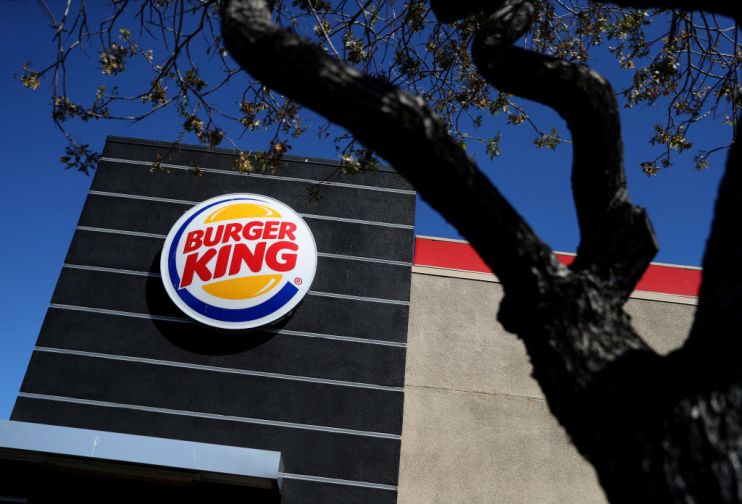
Ocado, Dunelm and Superdry show there’s always winners & losers in retail

It’s not all doom and gloom in retail. Whilst we have certainly seen a downturn on the high street, there are winners as well as losers. Next shares are among the best performers on the FTSE in 2019, up 30% so far. And they’re not alone in outperforming the market despite the trouble on the high street.
Just look at Dunelm Group, which has managed to turn things around in the last couple of years in fine style.
Dunelm continues to defy the broader retail malaise. A significant factor in the success is pricing – Dunelm offers price-conscious consumers a lot of options on all of the essentials, leaving in able to mop up demand. It’s basic retailing – get the sourcing right and you can tailor prices for your audience.
Total like-for-like (LFL) revenue for the fourth quarter increased by 15.4 per cent, boosted not only by stronger underlying performance but also by a weaker comparative period a year before and good weather in 2019. Q4 LFL store revenue increased by 12.1 per cent, while online revenues rose 37 per cent.
Dunelm is also delivering on margins as it folds Worldstores into the group. Gross margin increased by approximately 240bps with core Dunelm margins improving by 200bps thanks to better sourcing and a lower level of end of season clearance sales versus last year. Meanwhile sales from margin-dilutive Worldstores made up a lower proportion of total revenues. Full year group margins are seen up 160bps, with core Dunelm margin improving by around 100bps.
Management says full-year profit before tax will be at the upper end of the £124m – £126 range announced in June. Shares could well bounce back to those mid-June highs.
No fire sale at Ocado
Despite taking a £100m hit, Ocado has largely shrugged off the fire at its Andover warehouse to deliver a healthy bump in retail revenues, whilst it’s also sharply increasing fees from partners using its technology.
Ocado booked £98.5m in charges to reflect the net cost associated with the write-down of Andover CFC and associated assets. Despite the fire, adjusted Retail revenues were up 9.7 per cent to £803.2m. The fire removed 10 per cent of capacity and 2 per cent of sales. Basket sizes held firm.
The fire of course had a material impact on group profits in the first half – earnings before nasties were almost halved to £18.7m on an adjusted basis, although management also notes the costs of share schemes and the impact of IFRS 15 delaying the recognition of fees from international Solutions partners. As such Ocado reported a £43m loss before tax, sharply up from the £13m loss in the same period a year before.
Ocado expects to take a further £15 million hit to group EBITDA from Andover-related disruption. But despite this the company expects Retail revenue growth of 10-15 per cent in the second half of the year. Meanwhile the Morrison’s holiday at Erith will slow growth in Solutions. Management also anticipates a £10m hit from share schemes on EBITDA.
Now to the real deal – where Ocado will grow revenues in future from international partnerships. Here invoiced fees grew in 1H 2019 to £46.7 million from £23.7 million in 1H 2018. International fees are only a tiny revenue stream now but will grow sharply.
Total fees invoiced from Solutions partners rose 36 per cent to £122.7 million, as we start to see the slow trickle coming from international partners turn into a flood. Management will continue to target international deals but notes this would hit short-term profits.
Bottom line: Ocado is taking big hit from the Andover fire on group earnings this year but this is already baked into the share price and the fees from international deals are starting to come through. These will ratchet up significantly in the coming years. The M&S deal provides necessary cash for investment whilst deleveraging the business from the UK retail market.
Not so Superdry
It’s a very different story for Superdry, which is still struggling for direction and has just reported a rough second half. In fact it’s been a very rocky year for the brand with boardroom battles and the reinstatement of co-founder Julian Dunkerton as CEO.
The results don’t look so flash: Gross margins down 2.5 percentage points to 55.6 per cent, group revenues flat, underlying pre-tax profits more than halved to £41.6m, whilst it swung to a statutory loss of £85.4m against profit of £65.3m last year. Same store sales were down 10 per cent. Not a good look for management to sport.
FY 2020 is seen as a year of ‘reset’. So, the turnaround is only just beginning and there could be worse to come in the near term. Shareholders will have to tough this out for a while yet. It’s been a rough year for the brand and things will not be remedied overnight – as Mr Dunkerton admits. Shares are already on the deck though, so if the turnaround works then it could be a more positive 2021. There will be a while to wait though.
